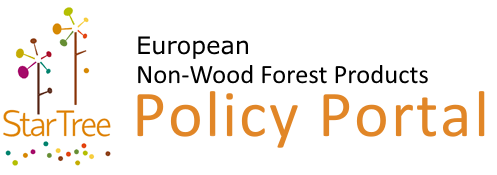Forest Law (2012, 2014): harvesting regulations
Description
Brief description of the instrument and its modus operandi
The purpose of this Law is to regulate sustainable management of all the forests of Latvia, by guaranteeing equal rights, immunity of ownership rights and independence of economic activity, and determining equal obligations to all forest owners or lawful possessors. // (2) Additional restrictions for the management of specially protected nature territories, micro-reserve, protected zones and specially protected forest areas shall be prescribed by other laws and Cabinet Regulations.
Which problem the instrument is supposed to solve?
Conflicts with the Law of Income Tax
Purpose or main objective / overall goal of the instrument?
The subject matter of this Law is forest and forest land:1) a forest is an ecosystem in all stages of its development, dominated by trees the height of which at the particular location may reach at least seven metres and the present or potential projection of the crown of which is at least 20 per cent of the area occupied by the forest stand; and2) forest land is land covered by forest, land under forest infrastructure facilities, as well as adjacent overflowing clearings, marshes and glades.
Side objectives/goals of the instrument?
(1) Natural persons have the right of access and free movement in a State or a local government forest, if regulatory enactments do not specify otherwise. Means of transportation may be used only for moving along forest roads, except in cases when it is p
Innovation content or potential of the instrument?
More side products, specially, NWFPs should be included in the Law
Which laws and regulations support the implement of this instrument?
Cabinet Regulations on forest regeneration, Hunting Law
The initiator/promoter of the instrument?
Government agency: State Forest Service
Which organizations are involved in the operationalization of the instrument?
State Forest Service, JSC “Latvia’s State Forests”
How the monitoring is ensured?
Basically, there is a problem with controlling mechanisms due to lack of human resources etc. Mostly people are controlled at the places they sell their products, if they possess tax payer card and licence of selling certain product on the street etc.
How the compliance is ensured?
Penalty is 20-200 Eur for individuals and up to 2000 Eur for enterprises.
How is the overall performance of the instrument?
Badly, because there is no possibility to make the individuals pay any fines.
Additional comments
Improvements needed
Have any of the items mentioned above changed since the instrument entered into force?
No
Is there any qualitative or quantitative study of the impacts of the instrument?
No
| Instrument | |
| Year | 2012 with changes in 2014 |
|---|---|
| Policy area | Forestry |
| Affected activity | Harvesting/Production |
| Affected actors | Landowner/land manager, Processor |
| Products | Mushrooms/truffles |
| Subject | NWFP |
| Promoter/initiator | Public |
| Zone | North East Europe |
| Countries | Latvia |
| Regions (NUTS 2) | Latvia |
| Instrument type | Regulatory, Economic |
| Legal status | Binding |
| Geographical scope | National |
| Affected activity | Harvesting/Production + |
| Affected actors | Landowner/land manager + and Processor + |
| Class | Instrument + |
| Countries | Latvia + |
| Encodedname | Forest_Law_.282012.2C_2014.29:_harvesting_regulations + |
| Geographical scope | National + |
| Initiator | Public + |
| Instrument type | Regulatory + and Economic + |
| Lcname | forest law (2012, 2014): harvesting regulations + |
| Legal status | Binding + |
| Name | Forest Law (2012, 2014): harvesting regulations + |
| Policy area | Forestry + |
| Products | Mushrooms/truffles + |
| Reference ID | 395 + |
| Regions | Latvia + |
| Response set | Latvia Instrument A1 - Agent 1 Landowners + |
| Subject | NWFP + |
| Year | 2012 + |
| Zone | North East Europe + |
